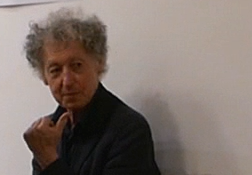
Édouard Adolphe Drumont was a French antisemitic journalist, author and politician. He initiated the Antisemitic League of France in 1889, and was the founder and editor of the newspaper La Libre Parole. After spending years of research, he synthesised three major types of antisemitism. The first type was traditional Catholic attitudes toward the alien "Christ killers" augmented by vehement antipathy toward the French Revolution. The second type was hostility toward capitalism. The third type was so-called scientific racism, based on the argument that races have fixed characteristics, and asserting that Jews have negative characteristics. His work played a key role in catalyzing the Dreyfus Affair.

Patrick Cabanel is a French historian, director of studies at the École pratique des hautes études and holder of the chair in Histoire et sociologie des protestantismes. He mainly writes on the history of religious minorities, the construction of a secularised French Republic and French resistance to the Shoah.
Job de Roincé, was a French journalist and writer, and also one of the founding figures of Breton nationalism.
Henri Petit (1899–1985) was a French journalist, collaborationist under the Vichy regime, and far-right activist.

Shmuel Trigano is a sociologist, philosopher, professor emeritus of sociology at Paris Nanterre University. He was Tikvah Fund Visiting Professor in Jewish Law and Thought at Benjamin N. Cardozo School of Law, New York (2009), and Templeton Fellow at the Herzl Institute (Jerusalem) program "Philosophy of the Tanakh, Midrash and Talmud" (2012-2013), (2015-2017). Elia Benamozegh European Chair of Sephardic Studies, Livorno, Italy (2002).

Georges-Elia Sarfati is a philosopher, linguist, poet, and an existentialist psychoanalyst, author of written works in the domains of ethics, Jewish thought, social criticism, and discourse analysis. He has translated Viktor E. Frankl. He is the grand-nephew of the sociologist Gaston Bouthoul.
Jean Arfel, better known by his pen name Jean Madiran, was a French right-wing editor, journalist and a traditionalist Catholic writer who was born in Libourne. He has also used the pen name Jean-Louis Lagor.
Annie Ousset-Krief, Ph.D. and associate professor at the Université Sorbonne Nouvelle, is a French historian and American Civilization specialist.
Led by Philippe Pétain, the Vichy regime that replaced the French Third Republic in 1940 chose the path of collaboration with the Nazi occupiers. This policy included the Bousquet-Oberg accords of July 1942 that formalized the collaboration of the French police with the German police. This collaboration was manifested in particular by anti-Semitic measures taken by the Vichy government, and by its active participation in the genocide.

Henry Aron was a French journalist and political essayist. He wrote for several prominent Parisian journals and was director of the Journal officiel de la République française from 1876 until 1881. He also served in the government of Léon Gambetta, France's 45th Prime Minister. Aron was born in Besançon and died in Paris at the age of 43. He was awarded the Legion of Honor in 1878.

Pierre Birnbaum is a French historian and sociologist.

Esther Benbassa is a French-Turkish-Israeli historian and politician. She specializes in the history of Jews and other minorities. Since 2011, Benbassa has served as a French senator, representing Paris from 2017 onwards and Val-de-Marne from 2011 to 2017.

Georges Bensoussan is a French historian. Bensoussan was born in Morocco. He is the editor of the Revue d'histoire de la Shoah. He won the Memory of the Shoah Prize from the Jacob Buchman Foundation in 2008.

Gaston Méry was a French author, translator and journalist. He was violently antisemitic and was also hostile to the people of the south of France, whom he saw as racially impure and inferior Latin peoples compared to the Celts of the north. He founded a journal L'écho du merveilleux which was largely devoted to proving the reality of a series of visions of the Virgin Mary, Joan of Arc and Jesus reported by Marie Martel in Calvados. From 1900 until his death he was a member of the Paris municipal council.
Laurent Joly is a French historian and a specialist of Vichy France and antisemitism.
Simon Epstein is an Israeli economist and historian.

Jean-Christophe Attias is a French historian and scholar. He was born to an Algerian Jewish father and a Catholic mother from the Charente.

The Law of 3 October 1940 on the status of Jews was a law enacted by Vichy France. It provided a legal definition of the expression Jewish race, which was used during the Nazi occupation for the implementation of Vichy's ideological policy of "National Revolution" comprising corporatist and antisemitic racial policies. It also listed the occupations forbidden to Jews meeting the definition. The law was signed by Marshall Philippe Pétain and the main members of his government.
The Law of 4 October 1940 regarding foreign nationals of the Jewish race was a law enacted by the Vichy regime, which authorized and organized the internment of foreign Jews and marked the beginning of the policy of collaboration of the Vichy regime with Nazi Germany's plans for the extermination of the Jews of Europe. The law was published in the Journal officiel de la République française on 18 October 1940.
Yonathan Arfi is a French CEO and activist. A member of the Conseil Représentatif des Institutions juives de France since 2002, he was elected as vice-president on 4 February 2014, and ran for president in 2022. On 26 June 2022, he succeeded Francis Kalifat as president of the CRIF.










